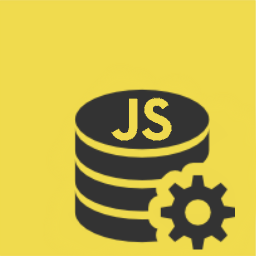I'm attempting to use js-data with JSPM and was starting by writing a test to understand how js-data / js-data-http works but have already ran into an issue. Below is the test I'm attempting to run with Karma / Chrome
import JSData from 'js-data';
import DSHttpAdapter from 'js-data-http';
import sinon from 'sinon';
describe("JSData Suite", function() {
beforeEach(function() {
this.xhr = sinon.useFakeXMLHttpRequest();
this.requests = [];
this.xhr.onCreate = function (xhr) {
console.log('request found', xhr);
this.requests.push(xhr);
console.log('request pushed');
};
this.store = new JSData.DS();
this.store.registerAdapter('http', new DSHttpAdapter(), { default: true } );
this.User = this.store.defineResource('user');
});
afterEach(function() {
// Restore the global timer functions to their native implementations
this.xhr.restore();
});
it("User resource", function(done) {
this.User.find(1).then(function(data) {
console.log('RESPONSE');
console.log(data);
expect(data).to.exist;
expect(data.id).to.equal(1);
done();
});
setTimeout(() => {
console.log('responding...');
this.requests[0].respond(200, { "Content-Type": "application/json" }, JSON.stringify({id: 1, name: 'Sean'}));
}, 100);
});
});INFO: null, 'new data store created', Defaults{}, null, null
INFO: null, 'registerAdapter', 'http', DSHttpAdapter{defaults: Defaults{log: function (a, b) { ... }, error: function (a, b) { ... }}}, Object{default: true}
INFO: null, 'default adapter is http', null, null, null
INFO: 'user', 'Preparing resource.', null, null, null
INFO: 'user', 'Done preparing resource.', null, null, null
INFO: 'user', 'find', 1, Defaults{}, null
INFO: null, 'getAdapter', Defaults{}, null, null
LOG: 'request found', FakeXMLHttpRequest{readyState: 0, requestHeaders: Object{}, requestBody: null, status: 0, statusText: '', upload: UploadProgress{eventListeners: Object{progress: ..., load: ..., abort: ..., error: ...}}, responseType: '', response: '', withCredentials: false, eventListeners: Object{loadend: [...], abort: [...], load: [...], loadstart: [...]}}
ERROR: 'Potentially unhandled rejection [5] TypeError: Cannot read property 'method' of undefined
at logResponse (http://localhost:9876/base/jspm_packages/npm/[email protected]/dist/js-data-http.js:150:73)
at O (http://localhost:9876/base/jspm_packages/es6-module-loader.js?7c8d992be9f4d67806fc861d6662acb5c4ad5c24:7:7439)
at K (http://localhost:9876/base/jspm_packages/es6-module-loader.js?7c8d992be9f4d67806fc861d6662acb5c4ad5c24:7:7071)
at z.when (http://localhost:9876/base/jspm_packages/es6-module-loader.js?7c8d992be9f4d67806fc861d6662acb5c4ad5c24:7:10953)
at x.v.run (http://localhost:9876/base/jspm_packages/es6-module-loader.js?7c8d992be9f4d67806fc861d6662acb5c4ad5c24:7:9781)
at a._drain (http://localhost:9876/base/jspm_packages/es6-module-loader.js?7c8d992be9f4d67806fc861d6662acb5c4ad5c24:7:1740)
at drain (http://localhost:9876/base/jspm_packages/es6-module-loader.js?7c8d992be9f4d67806fc861d6662acb5c4ad5c24:7:1394)
at MutationObserver.b (http://localhost:9876/base/jspm_packages/es6-module-loader.js?7c8d992be9f4d67806fc861d6662acb5c4ad5c24:7:3302)'
LOG: 'responding...'
JSData Suite
✖ User resource
Finished in 0.424 secs / NaN secs
SUMMARY:
✔ 0 tests completed
✖ 1 tests failed
FAILED TESTS:
JSData Suite
✖ User resource
Chrome 43.0.2357 (Mac OS X 10.10.3)
Uncaught TypeError: Cannot read property 'respond' of undefined (/Users/smlynch/Development/playground/js-data-test/test/simple.test.js!eval:48)
Error: Uncaught TypeError: Cannot read property 'respond' of undefined (base/test/simple.test.js!eval:48)
{
"jspm": {
"directories": {},
"dependencies": {
"js-data": "npm:js-data@1",
"js-data-http": "npm:js-data-http@1",
"js-data-schema": "npm:js-data-schema@1",
"sinon": "npm:sinon@^1.15.3"
},
"devDependencies": {
"babel": "npm:babel-core@^5.1.13",
"babel-runtime": "npm:babel-runtime@^5.1.13",
"core-js": "npm:core-js@^0.9.4"
}
},
"devDependencies": {
"karma": "^0.12.36",
"karma-chrome-launcher": "^0.1.12",
"karma-jasmine": "^0.3.5",
"karma-mocha": "^0.1.10",
"karma-mocha-reporter": "^1.0.2",
"karma-sinon-chai": "^1.0.0",
"mocha": "^2.2.5"
}
}ERROR: 'Potentially unhandled rejection [5] TypeError: Cannot read property 'method' of undefined
at logResponse (http://localhost:9876/base/jspm_packages/npm/[email protected]/dist/js-data-http.js:150:73)
...
I'm using js-data* 1.x as the 2.x betas (which are installed by default off npm if I didn't add @1) were giving me an error on new DSHttpAdapter() if I didn't pass an empty options object (ie. new DSHttpAdapter({}))
![]()





